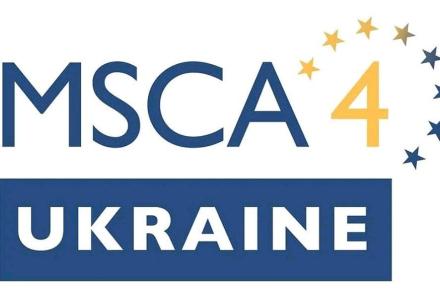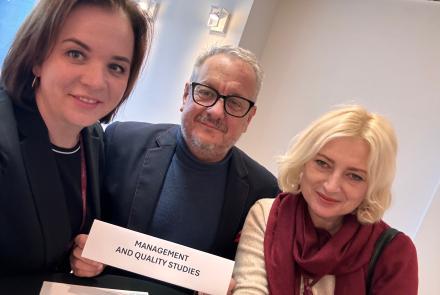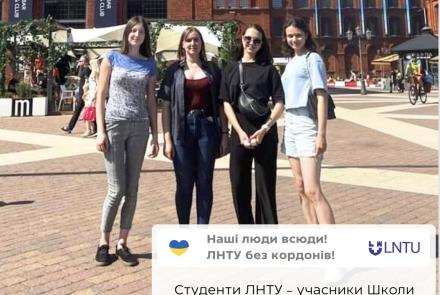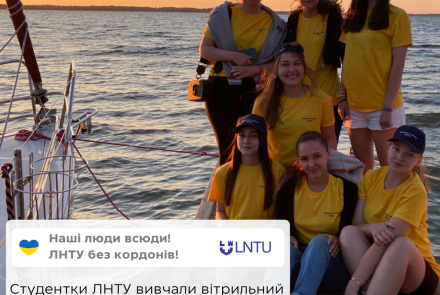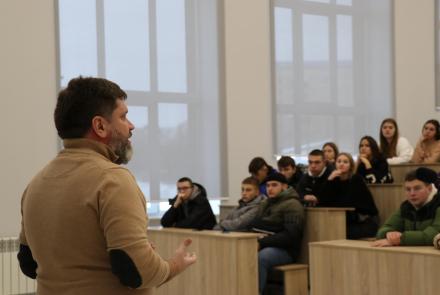
PROJECT “MODERNIZATION OF TWO CYCLES (MA, BA) OF COMPETENCE-BASED CURRICULA IN MATERIAL ENGINEERING ACCORDING TO THE BEST EXPERIENCE OF BOLOGNA PROCESS”
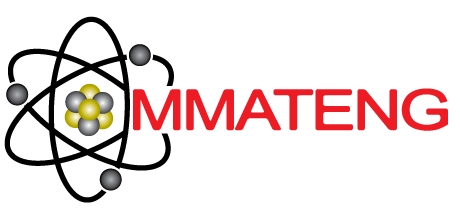
Duration: December 1, 2013 – November 30, 2016 (36 months)
EU funding program: INTERREG
Grant amount: € 1,216,789.02
Target group: students, graduates, academic staff and university authorities, managers of industrial enterprises, and city administration bodies.
Kick-off conference of the project in the city of Antwerp (Belgium)
Impact and sustainability of results
MITL Laboratory and MESO Service Office
Monitoring of the project by the National Tempus Office
Project website:
PROJECT “MODERNIZING HIGHER ENGINEERING EDUCATION IN GEORGIA, UKRAINE AND UZBEKISTAN TO MEET THE TECHNOLOGY CHALLENGE” (ENGITEC)

Duration: October 15, 2012 - October 14, 2015 (36 months)
Tempus program grant amount: € 1,169,357.25
Target group: students, graduates, teachers and scientists of Ukrainian universities, and industry.
Project Coordinator: KTH Royal Institute of Technology
Project manager at Lutsk National Technical University: Oleh Zabolotnyi, Dean of the Faculty of Technology
Partnership:
- KTH Royal Institute of Technology, Sweden
- Politecnico di Torino, Italy
- University of Leeds, Great Britain
- Akaki Tsereteli State University, Georgia
- Georgian Technical University, Georgia
- Shota Rustaveli State University, Georgia
- Delcam PLC, Great Britain
- Lutsk National Technical University, Ukraine
- National Metallurgical Academy of Ukraine, Ukraine
- Sumy State University, Ukraine
- Zaporizhzhya National Technical University, Ukraine
- Tashkent Automotive Road Institute, Uzbekistan
- Jizzakh Polytechnic Institute, Uzbekistan
- Bukhara Engineering-Technical Institute of High Technologies, Uzbekistan
- Special Design Bureau of Tashkent Tractor Plant, SDB "Tractor", Uzbekistan
- SPA AnalytPribor, Georgia
- Zaporizhzhia Engineering Design Department “Progress”, Ukraine
The purpose and tasks of the project:
- To develop the potential of 3 Georgian, 4 Ukrainian and 3 Uzbek engineering universities regarding the implementation of modern European teaching methods.
- Modernize master and PhD programs by introducing new interdisciplinary modules.
- Develop a new platform for dialogue between universities and industry to ensure the relevance of higher engineering education to modern technological challenges.
Areas of activity under the project:
- Analytical study of modern trends and concepts in higher engineering education.
- Comparative analysis of curricula.
- Analytical study of modern trends and concepts in higher engineering education.
- Comparative analysis of curricula.
- Development of the concept of reforming higher engineering education.
- Development of interdisciplinary modules for masters and PhD students.
- Development of materials for new courses.
- Creation of interfaculty design laboratories.
- Short-term advanced proficiency training courses for university lecturers.
- Conducting seminars.
- Familiarization with European practice and principles of cooperation between universities and industry.
- Creation of joint methodical commissions.
- Development of an action plan for sustainable dialogue between universities and enterprises.
- Project quality control.
- Dissemination of the experience gained.
- Teaching according to updated programs and new modules.
- Education of Georgian, Ukrainian and Uzbek students in the EU.
- Conducting colloquiums on the advanced proficiency training of lecturers on an ongoing basis
- Commercial services of interfaculty design laboratories.
Project expected outcomes:
- Analysis of modern European concepts of higher engineering education, comparative analysis of curricula in universities from the EU and partner countries, the concept of reform of higher engineering education, and action plan for sustainable dialogue between universities and industry.
- Interdisciplinary modules and corresponding educational materials embodied in master's and PhD programs in 7 engineering fields, taught in 3 Georgian, 4 Ukrainian and 3 Uzbek universities.
- Interfaculty design laboratories and joint methodological commissions established in 10 universities from partner countries.
Official web-site of the project: http://www.engi-tec.net/
Modern educational equipment was purchased with the funds of the project, and an interfaculty laboratory was equipped.

Сайт проекту: http://engi-tec.net/
За кошти проекту закуплене сучасне навчальне обладняння, та оснащено міжфакультетську лабораторію.
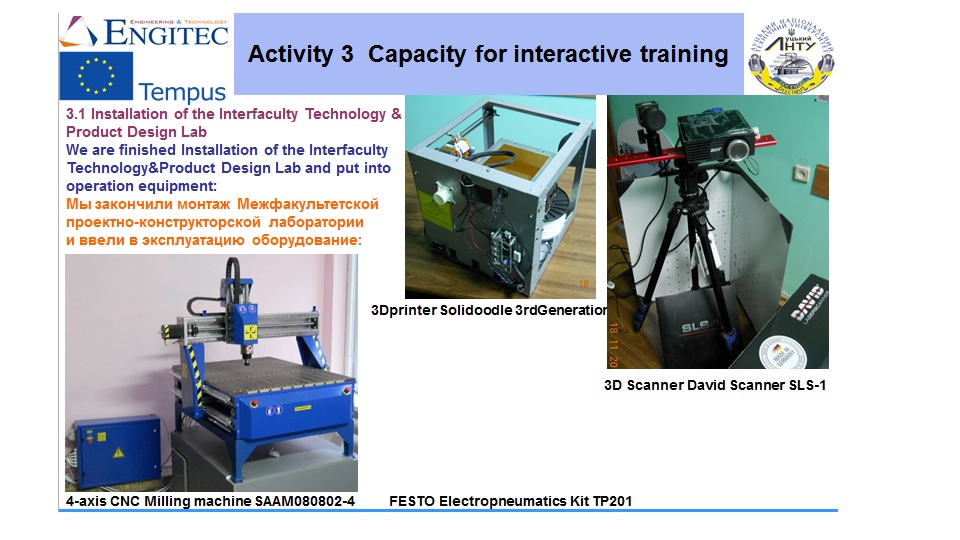
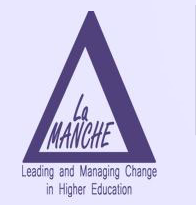
Priority: to develop leadership skills and to introduce the culture of streamlined change management in academic settings in the context of national and international modernisation processes in higher education
Project duration: October 15, 2012 – October 14, 2015
EU funding program: Tempus IV programme
Grant amount: € 837,652.06
Target group: students, graduates, lecturers and authorities of universities, and local government authorities.
Project Coordinator and Grant holder: International University College, Bulgaria
Partners: https: https://lntu.edu.ua/uk/parntery-0
Project consortium:
- International University College, Bulgaria
- Clevercherry, Great Britain
- University College Birmingham, Great Britain
- Agrosup Dijon, France
- Polytechnic Institute of Bragança, Portugal
- Ivane Javakhishvili Tbilisi State University, Georgia
- International Black Sea University, Georgia
- Gori State Teaching University, Georgia
- Caucasus University, Georgia
- University of Thessaly, Greece
- Alecu Russo Balti State University, Moldova
- State Agrarian University of Moldova, Moldova
- Moldova State University, Moldova
- Comrat State University, Moldova
- Yerevan State University, Armenia
- State Engineering University of Armenia (Polytechnic), Armenia
- Gavar State University, Armenia
- Armenian National Agrarian University, Armenia
- Vitebsk State Technological University, Belarus
- Educational Establishment “P.O. Sukhoi State Technical University of Gomel”, Belarus
- Belarusian Trade and Economic University of Consumer Cooperatives, Belarus
- Belarus State Economic University, Belarus
- Lviv Academy of Commerce, Ukraine
- Lutsk National Technical University, Ukraine
- Lviv Polytechnic National University, Ukraine
- Odesa National Economic University, Ukraine
- National Technical University "Kharkiv Polytechnic Institute", Ukraine
- Volodymyr Dahl East Ukrainian National University, Ukraine
- Cherkasy State Technological University, Ukraine
2nd La MANCHE Partner Meeting (April 23-25, 2013, Birmingham):
The responsible person at LNTU: Natalia Martyniuk
Contact information:
E-mail: mari_nata0@mail.ru
tel.: + 38 050 7885253
The La MANCHE project's aims and objectives are:
1) to map out current leadership skills and prevalent management models at HEIs in the participating Partner Countries (PCs)
2) to map out the broader environment and socio-economic conditions in which HE modernization processes in the PCs evolve
3) to transfer context-sensitive good governance practices and models for effective leadership and change management from EU HEIs to HEIs in Armenia, Belarus, Georgia, Moldova and Ukraine
4) to build the leadership capacities of the senior management at PCs HEIs with a focus on transformational leadership
5) to involve EU and PCs HEI leaders in interactive peer learning and exchange of good practices in the field of HE governance
6) to provide a platform for critical dialogue and to promote joint problem-solving and interaction among PCs HEIs and other key stakeholders in HE; in particular, to stimulate grassroots leadership initiatives among students
7) to develop and promote a context-sensitive strategy for leading and managing change in HE in the region
8) to raise awareness of the European Higher Education Modernization Agenda and the need for HE reforms in the PCs.
Areas of activity under the project:
1. Self-assessment and external analysis of Leadership and Management Skills and Models at the Higher Education Institutions in Armenia, Belarus, Georgia, Moldova and Ukraine
2. Study of examples of modernization and their impact on universities of partner countries.
3. Capacity-building activities, including the elaboration of syllabuses in leadership and change management.
4. Identification of successful European models for leadership and change management.
5. Training for trainers in leadership and change management, local multiple pieces of training in change management aimed at managers and authority of HEIs.
Expected outcomes:
1. Promotion of transnational cooperation between the EU and the authorities of HEIs of partner countries and other leading stakeholders through the creation of research centres and conducting other types of work.
2. National conferences related to modernization and changes in partner countries.
3. Development of a change management strategy in HEIs of partner countries.
4. Creating opportunities for young managers and women managers.
5. Dissemination of project outcomes.
Information project outputs:
- External assessment report “Leadership and Management Skills and Models at the Higher Education Institutions in Armenia, Belarus, Georgia, Moldova and Ukraine”
- Project information bulletins
- Changing Higher Education Institutions in Societies in Transition. In-depth Study Report.
- Handbook of European Governance Practices in Higher Education
Project website: https://lamanche-tempus.eu/
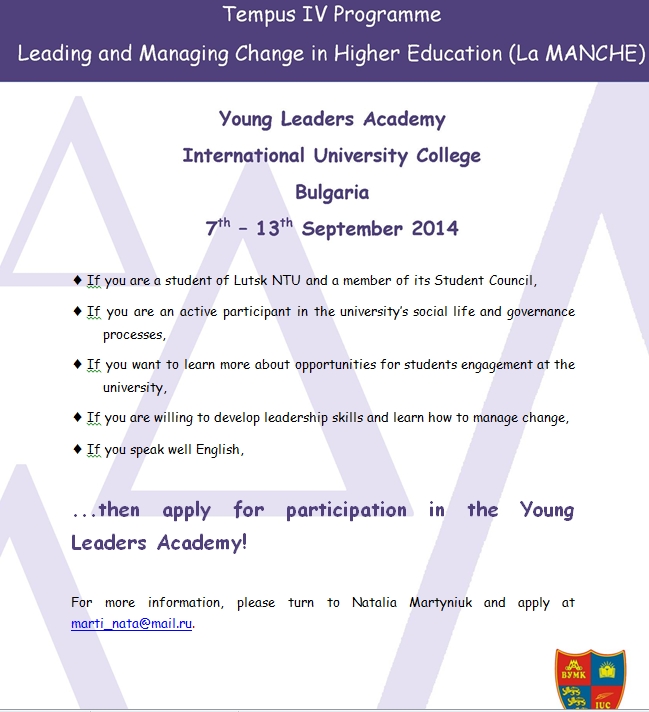

Project duration: October 15, 2010 – October 14, 2013
Project website: http://promeng.eu/
Partners: https://lntu.edu.ua/uk/partnery
Project consortium:
- Technische Universität Berlin, Germany
- Lessius Mechelen Campus De Nayer, Belgium
- Vilnius Gediminas Technical University, Lithuania
- ECM Manufacture, Germany
- Bauman Moscow State Technical University, Russia
- Kazan National Research Technical University named after A.N. Tupolev, Russia
- Volga State University of Telecommunications and Informatics, Russia
- Pryazovskyi State Technical University, Ukraine
- Lutsk National Technical University, Ukraine
- Zaporizhzhia State Technical University, Ukraine
- Karshi Engineering Economics Institute, Uzbekistan
- Tashkent State Technical University, Uzbekistan
- Fergana Polytechnic Institute, Uzbekistan
- Federal Agency for Education, Russia
- Ministry of Education and Science of Ukraine
- The Center of Higher and Secondary Education Development of Uzbekistan, Tashkent
- Donetsk Chamber of Commerce and Industry, Ukraine
- Chamber of Commerce and Industry of Uzbekistan, Tashkent
- Chamber of Commerce and Industry, Kazan, Russia
- Cooperation of universities in the CIS space, Russia
EU funding program: European Neighbourhood and Partnership Instrument
Development Cooperation Instrument
The aim and tasks of the project:
- Updating current curricula and programs in electrical engineering for master's studies following the requirements of the Bologna Declaration and the latest developments in engineering.
- Development, accreditation and implementation of new, professionally oriented curricula and modules in master engineering programs.
- Strengthening relations between educational institutions in partner countries and the labour market.
Global aims of the project:
1. Support of Ukrainian national programs using close cooperation between universities and enterprises of Ukraine in the development and implementation of advanced proficiency training courses for specialists and managers in the field of transport and logistics;
2. Transfer of European experience and methods related to electronic and distance learning in HEIs of Ukraine.
The special goals of the project are:
- Creation of a network of Ukrainian and European universities and enterprises for the joint development of management courses in the field of transport and logistics;
- Joint development of management and advanced proficiency training courses by Ukrainian specialists, and managers in the field of transport and logistics, including training of qualified specialists in systematic training of employees (instructors);
- Approbation and carrying out management courses in Kyiv, Odesa and Mariupol, including distance learning modules;
- Advanced proficiency training of university lecturers and specialists and managers in enterprises and institutions responsible for advanced proficiency concerning management understanding in Europe.
Expected outcomes:
1. Development of 4 "general" educational programmes for master's training:
- Applied informatics and digital data transmission systems;
- CAD/CAM/CAE design for electrical engineering/electronics;
- Monitoring and quality engineering standards;
- Engineering and management of environmental protection.
2. Creation of a new educational infrastructure for master's training:
- Computer classes for studying CAD/CAM/CAE and data transmission systems;
- Laboratory of digital wireless data transmission.
3. Development of 5 educational modules for master's training:
- Theory and practice of solving engineering tasks (Modern TRIZ)
- Modelling of production systems;
- Reengineering;
- Audit and basics of system certification based on ICO series standards;
- Interpersonal communication skills (Soft Skills) for engineers: professional and career competence, leadership, conflict management.
4. Advanced proficiency training of lecturers according to the new teaching methodology, conducting pieces of training for employees of enterprises and industrial partners.
5. Creation and opening of a network of ELM offices (engineers on the labour market) with the support of the Chambers of Commerce and Industry and interested entities.
Project outputs:
1. Introducing new laboratories into the educational process (computer class, data transmission laboratories). Use of new licensed software products (CAD/CAM, MTRIZ, SatPc32, Orbitron, Arswin).
- A computer class and a data transmission laboratory were created, which are on the departmental account of the Department of Computer Technologies of Vocational Training. The premises have been repaired, new furniture and a security alarm system have been installed. Equipment for the computer class was delivered in November 2011. In February 2012 the installation of ProEngineer and Altium Designer software was carried out in the computer class (room 212a).
- For the operation of the ELM office, a room has been allocated and a workplace has been organized.
- Students and lecturers have access to the laboratory to conduct educational classes and optional work (independent work of students). The responsible person for laboratories and equipment is the head of laboratories of the Department of Computer Technologies of Vocational Education, M.A. Kavarskyi.
The total number of students who have classes in the laboratories is about 130 people, lecturers - are 10 people.
The workload of the laboratories is - 212a - 25 hours per week, 17a - 8 hours per week.
2. Preparation for the publication of own teaching manuals
It is also planned to publish methodological manuals for the following disciplines:
- Soft skills for engineers.
- Wireless data transmission technologies
3. Results of pieces of training of university teachers in EU HEIs
In the period from August 2 to 17, as part of the TEMPUS PROMENG international program, teachers of the Department of Computer Technologies of Vocational Education, PhD, Associate Professor and head of the department Herasymchuk O.O., PhD, Associate Professor I.E. and assistant lecturer Oleksiv N.A. completed an internship at the Technical University of Berlin (TUB), Germany in the programs "Applied informatics and data transmission systems", "Control engineering", "Modernization and internationalization of higher education in engineering", "Soft skills", " Modern TRIZ", "Employment for engineers with the help of ELM offices (Engineer in Labor Market)" and have got certificates of successful participation in the intensive training course Europen TEMPUS project PROMENG (510920-TEMPUS-1-2010-1-DE-TEMPUS).
4. Survey of students
Developed student questionnaire: https://docs.google.com/forms/d/e/1FAIpQLSdiyoXChQSSI33AUPOTqyRw46ZSatBy1FBAMp_SlulwvugBrQ/viewform?formkey=dG9nRkw4dTNibzVud3RxeGF1LUJWeFE6MA#gid=0
A survey of students was conducted in March 2013 based on the results of studies in the fall semester of 2012, where issues of the effectiveness of the introduction of new disciplines were considered. The survey questions are currently being updated.
